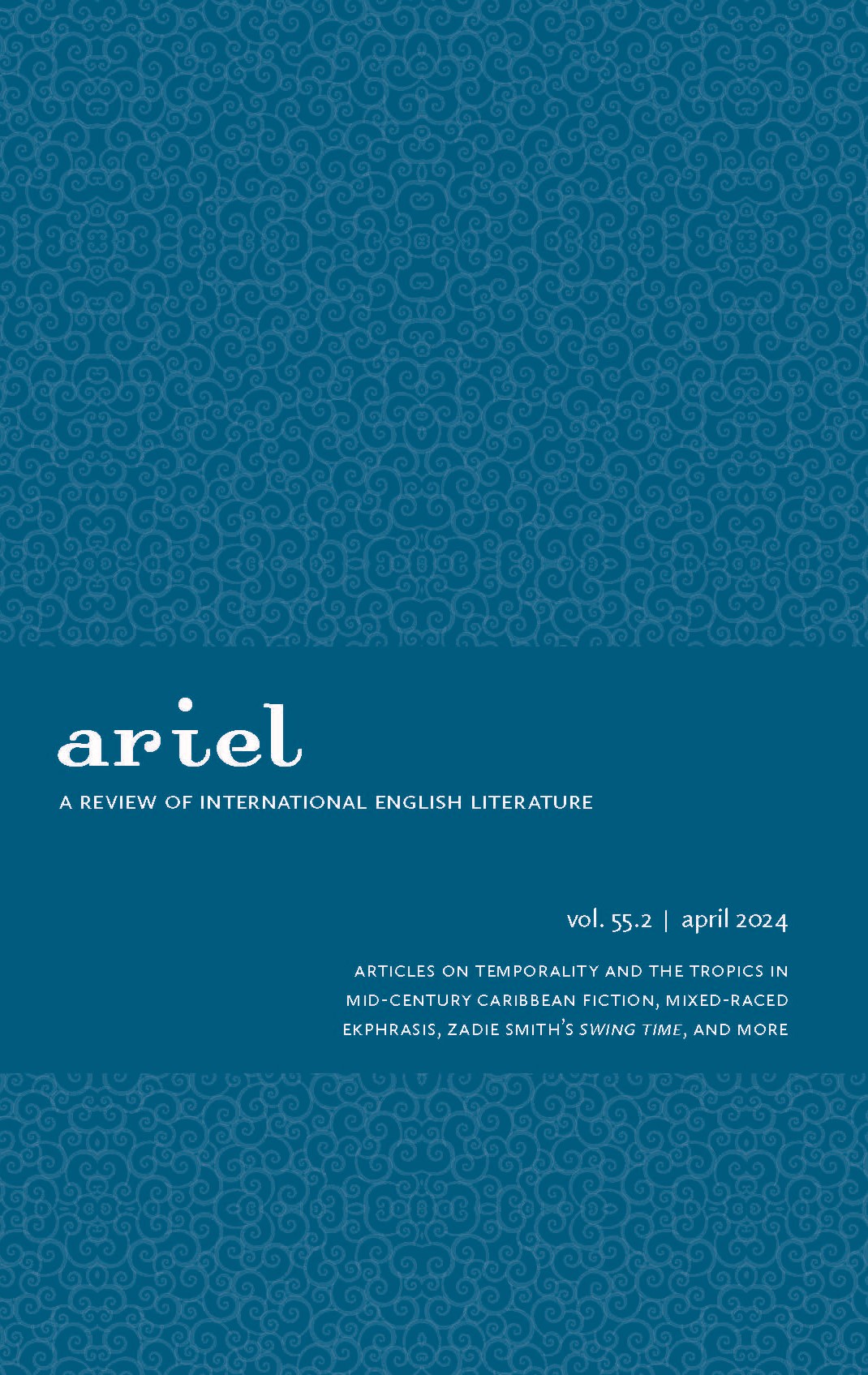Odd but recognizable”: Indigenous Epistemologies and Indo-Creole Belonging in Cyril Dabydeen’s Dark Swirl
Keywords:
Creoleization, East Indian, Indigeneity, Cyril Dabydeen, CaribbeanAbstract
Recent scholarship across postcolonial, settler colonial, and critical indigenous studies has interrogated the ascription of a settler identity to racialized communities whose own presence on Indigenous land may have been the result of the violent processes of colonialism. Simultaneously this body of work has attended to how even these communities can replicate settler modes of belonging that marginalize Indigenous Peoples. In the postcolonial Caribbean, a discourse of labor and ownership of land arguably consolidated Indo- and Afro-Creole belonging in such a way. This essay examines literary fiction’s role in imagining alternative ways of belonging for Indians or East Indians in Guyana. It illuminates how Cyril Dabydeen’s Dark Swirl (1988) circumvents the framework of labor, land ownership, and enclosure to articulate a mode of belonging that unfolds by engaging with Indigenous histories and epistemologies. The resultant rearrangement of East Indians’ understanding of the land they inhabit is key to the novel’s articulation of creole belonging. Dark Swirl thus intervenes in scholarship on creolization in the Caribbean that has often either been inattentive to East Indians or reproduced the discourse of Indigenous disappearance.


